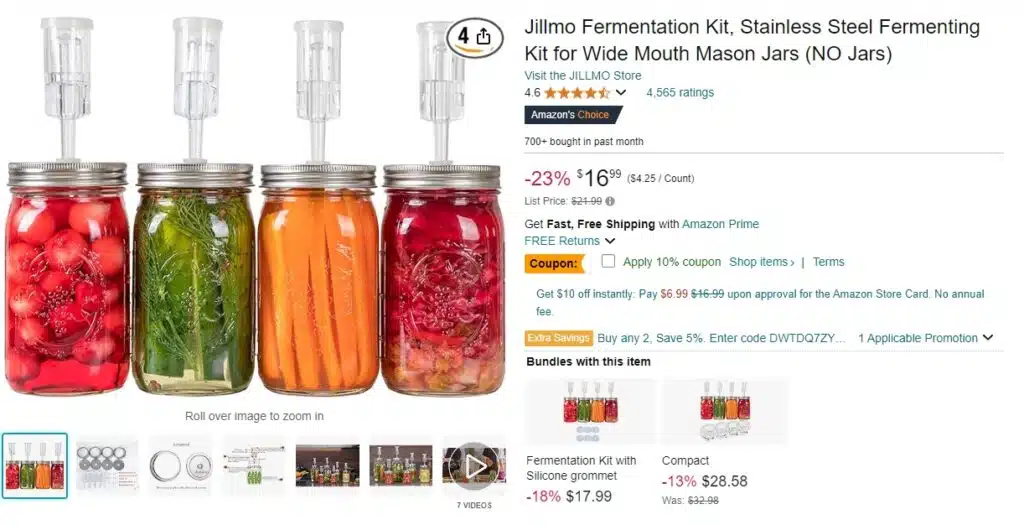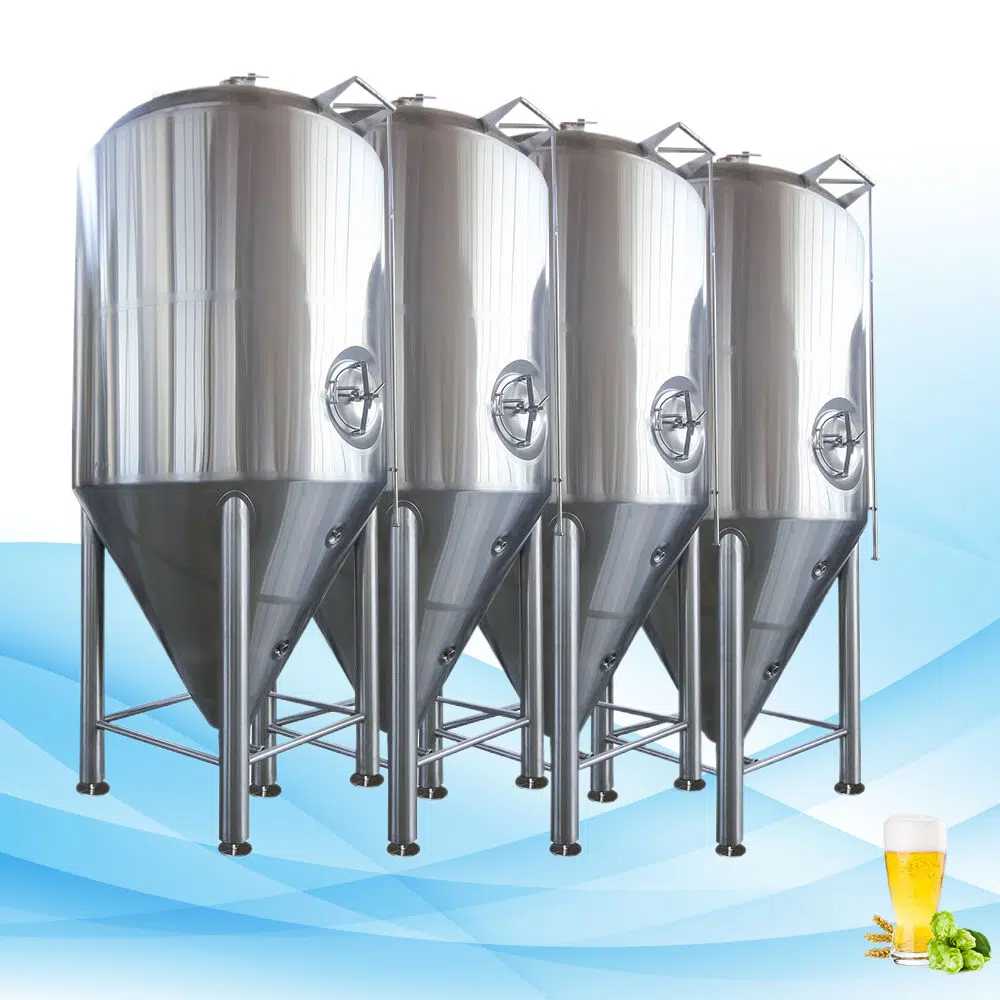In modern times, home brewing is one of the most sought after DIY activities with people seeking out ways to make wine, beer, or other manually made beverages for themselves. If you’re just looking to satisfy your curiosity to “make” your own beers or you’re a wine drinker who wishes you could contain some of their favorite wines, this will guide you on how to select your first home brewing kit, what essential items you will need, and how to acquire this skill.
Key Takeaways
- The first and most important thing to consider when trying to determine the appropriate starter kit is the aim of the brewing (is it for beer, for wine, both or none), and individual user preferences.
- Starter sets feature essential gear and ingredients that would enable them to commence brewing with minimum difficulty.
- Availability of high-grade ingredients and user-friendly equipment are essential components that ensure a favorable outcome in brewing activities.
- Cleaning, testing, and measuring is very important in the quest for optimal performance.
- Home brewing can progress from an ordinary pastime to an all-out craft with growth opportunities for both beer and wine and all the comforts that go with it.
Choosing Your First Home Brewing Kit
When starting out, buying the home brewing kit is a difficult task. It is solely based on the type of beverage you wish to create; beer, wine, or fermented drinks like kombucha or mead. So let’s define the choices with you and make a suitable decision.
Wine Making Kits

For people who love their wine, wine-making starter kits are designed to be as simple and practical as possible. These kits generally include grape concentrate, yeast, and some additives that help you create wines ranging from Cabernet to Chardonnay. Kits usually include ingredients such as hydrometers to measure the sugar level in the wine to ensure it is sweet enough to appeal to consumers.
Wine making kits can be of different sizes, small 1-gallon kits (which are highly suited for beginners) or the large 5-gallon setups. Understand if you want to move to stronger and more complex recipes and techniques, then stroking the ego in a small way is advisable.
Quality of Ingredients
The quality of the starter kit ingredients is an important aspect that determines the quality of the final product. For any beer or wine to taste better, it is important to use fresh, high-quality malt, hops, yeast, and grape concentrate. Some starter kits may come along with ingredients like powders or freeze kits that are not fresh anymore. Review expiration dates and maybe try and move to an extended kit with basic ingredients because seasoning seems to be a priority.
User-Friendliness
Beginner as they are, beginner kits focus more on user-friendly features inherent in the instruction and documentation where evaluation is done in a stepwise manner. Observe if there are kits that come with manuals, orienting or instructions, or any other customer support available. More the instruction a kit provides, the better will be the internalization of basic brewing concepts.
The Essentials of Home Brewing Equipment
Regardless of any specific kit that you might use, all home brewing kits will have certain specific equipment which one should know about. Here’s a breakdown of the must-have tools for any home brewer.
Brew Kettles & Pots
One of the key pieces of equipment in making your brew is the brew kettle that is used in boiling and subsequently extracting required flavors from your ingredients. In the case of brewing beers, a brew kettle will need to be at least a little over five gallons if you are planning to prepare 5-gallon batches. Always use stainless steel kettles for the simple reason that the material can withstand rough use and heat distribution is even.
Fermenting & Carboys
Having done the boil to your ingredients, fermentation is then performed in a fermenter or carboys (large plastic or glass jug). This is where all the fermentation action will take pause, so that alcohol concentration may build up in the beer or wine over time. Most of the beginner kits have a fermenter attached with an air lock, which makes it possible for gases to move out but does not allow airborne bacteria inside the fermenter.
Cleaning & Sanitizing
Sanitizing and cleaning play important roles in home brewing. Any equipment that comes into contact with your beer or wine should be sanitized to the most stringent standards to prevent any contamination. Although it expands the starter kit by including sanitizing solutions, it would be wise to buy other cleaning supplies as well to ensure that the brewing environment is devoid of unhealthy bacteria.
Testing & Measuring
Tools such as hydrometers, thermometers, and pH meters are quite essential for testing and measuring the brew during its various stages. Such parameters as alcohol content, temperature, and acidity will be placed in these tools which are very essential to ensure that the product delivered to the market meets your expectations.
Mastering the Craft: Learning to Brew
But brewing is definitely not about a handful of ingredients and some stirring – it is an art in which you will learn for several years. Do not expect your first batch to be the holy grail, but after each try, you will become more versed in the handling of the brewing process. Here’s the best way to start brewing both beer and wine.
Bottled Knowledge: How to Make Beer
It is worthy to note that beer brewing is a systematic multi-step process which entails brewing, fermenting, bottling, and aging. All these steps, however, are very important and interrelated in contributing towards the final taste and character of the beer. In the beginning of such kits, you will find some recipes, however, as soon as you get used to doing it, you will begin to experiment with different malts, hops, and yeasts.
Wine Making for Beginners
Wine making is a slow process but equally exciting and rewarding. Wine is then subjected to aging processes for its flavors to be developed for a few weeks or months. Beginner kits commonly come with everything that will allow you to make a drinkable wine in about 4-6 weeks. Wine-making for an experienced person may involve a little more creativity where additional substances such as oak chips or tannins may be included in the wine.
Ease of Cleaning
Cleaning breast pumps is one of the common worries for the fans of home brewing. With ultimate techniques, home brewing accessories are created with convenience in their cleanup. Choose the kits that come with simple fermenters and also come with very simple cleanable parts. Maintenance is very simple with stainless steel kettles and sturdy plastic carboys.
Variety of Recipes Included
An assortment of recipes is included in most of the beginner kits offered for sale. This not only makes the game enjoyable but also helps to appreciate the differences between the styles and qualities of different beers and wines. There is no harm in experimenting with some innovative recipes or spending time and resources on a more intricate one as the level of confidence grows.
Expanding Your Home Brewery
Another objective is to advance your home brewery from basic understandings to improved positions. To make effective beer, you need wider kits, different recipes, and advanced tools.
5 Gallon Beer Kits
If you began with a one-gallon beer kit, then upgrading to a five-gallon kit will allow you to produce more. This is especially helpful when you are brewing for occasions or for presents. Many brands of beer brewing kits have a cumulating 5-gallon kit with a wider array of recipes.
1 Gallon Wine Making Starter Kits
In terms of wine making, 1-gallon kits are most suited for amateur wine makers since they are not bulky. It is smaller, simpler to handle, and enables production of multiple kinds of wine without undertaking risky production of bulk wines.
New Beer Recipe Kits
Enhancement of the artistry is always experimenting. Beer kits come with all the constituents of a particular style of beer packaged to eliminate the difficulty of trying to make a whole lot of new beers. Try to find kits that have a different assortment of hops and malt extracts so that you may try brewing different styles.
Extract Variety 3-Packs
In order to save time, malt extract variety packs consist of a number of different malt extracts which are packed into one such that most bases may be altered without acquiring all the base ingredients before tasting any. These are very useful while brewing as they enhance the versatility of brewing quite a good number of cocktails.
The Most Suitable Fermentation Kits that Should be in Your Hands
Versatility
For instance, some fermentation kits like JILLMO Fermentation Kit have features to allow you brew several types of drinks – beer & wine or even make kegs of kombucha or sauerkraut. Such versatile kits provide room for those who want to venture into a variety of fermentation methods.
Durability
Good quality fermentation kits made from materials such as stainless steel or plastics that can withstand multiple brew cycles perform well and have a longer life span. One such product is the Alittle Fermentation Kit which is known for its high quality yet simple fermentation processes.
Most Versatile: JILLMO Fermentation Kit
With the JILLMO Fermentation Kit, the user has a beer and wine maker or even a vegetable and Kombucha fermenter at their disposal. This is very exciting for the daring home brewer who wishes to dip their toes into every pool.

Best Overall: Alittle Fermentation Kit
Reliable fermentation kits such as the Alittle Fermentation Kit have all these aspects in an optimal degree for anyone who is just starting. It’s a dependable kit that you will continue using even as you bloom this craft of brewing.
Conclusion
There are boundless opportunities for creativity in home brewing, whether one is attempting to prepare the latest draught pint of beer or ferment a new wine. Given the right starter kit, quality ingredients, and a bit of patience, anyone can be a successful home brewer. So when do you want to start brewing?
Frequently Asked Questions
What should I look for in a homebrewing kit as a beginner?
Look for a kit that has all the necessary tools and materials. It should also not be too complicated, with impractical design, instructions lying around in various languages, and no support available.
Do I need a home brewing kit for each type of beverage or can I make both beer and wine using the same kit?
It is true that some makers make kits for specific beverages, on the other hand, versatile fermentation kits are there for beer and wine experimentation.
How important is the quality of ingredients in a home brewing kit?
Quality ingredients are fundamental when it comes to producing good beer and wine. In your brew, the quality of hops, malts, yeast, and grape concentrates you use will greatly influence the taste of beer.
What are the essentials of home brewing equipment I need to start?
The essentials include a brew kettle, fermenter, airlock, sanitizing solution, and measuring tools such as a hydrometer and thermometer.
Do fermentation kits come in different varieties?
Yes, fermentation kits vary in some aspects, for instance, size, versatility, and materials. Some kits are targeted to certain beverages, yet others are more universal and enable doing various fermentation projects.
Is cleaning home brewing equipment difficult?
Not really. With the appropriate cleaning materials and proper maintenance, the home brewing equipment is not that hard to clean.
WHY CHOOSE US
We have a collection of home brewing kits appropriate for beginners as well as experienced brewers. All the ingredients and equipment that we provide in the kits are of excellent quality, which guarantees a successful brewing process.
















